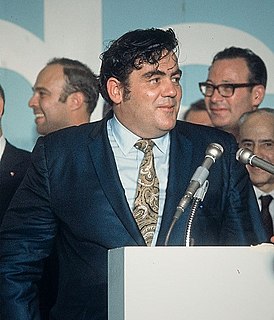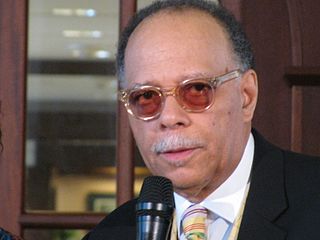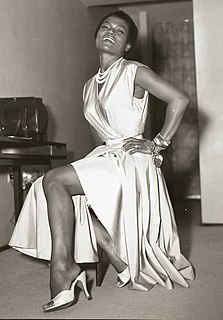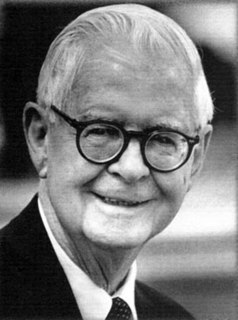A Quote by Norman Cousins
It makes little difference how many university courses or degrees a person may own. If he cannot use words to move an idea from one point to another, his education is incomplete.
Related Quotes
No thought, no idea, can possibly be conveyed as an idea from one person to another. When it is told it is to the one to whom it is told another fact, not an idea. The communication may stimulate the other person to realize the question for himself and to think out a like idea, or it may smother his intellectual interest and suppress his dawning effort at thought. But what he directly gets cannot be an idea. Only by wrestling with the conditions of the problem at first hand, seeking and finding his own way out, does he think.
To teach effectively a teacher must develop a feeling for his subject; he cannot make his students sense its vitality if he does not sense it himself. He cannot share his enthusiasm when he has no enthusiasm to share. How he makes his point may be as important as the point he makes; he must personally feel it to be important.
From a human point of view, the difference between the mind of a human and that of a mountain goat is wonderful; from the point of view of the infinite ignorance that surrounds us, the difference is not impressive. Indeed, from that point of view, the goat may have the better mind, for he is more congenially adapted to his place, and he would not endanger his species or his planet for the sake of an idea.
What is education? Properly speaking, there is no such thing as education. Education is simply the soul of a society as it passes from one generation to another. Whatever the soul is like, it will have to be passed on somehow, consciously or unconsciously, and that transition may be called education. ... What we need is to have a culture before we hand it down. In other words, it is a truth, however sad and strange, that we cannot give what we have not got, and cannot teach to other people what we do not know ourselves.
Originality cannot be a goal. It is simply inevitable. The truly pathbreaking step can never be predicted, and certainly not by the person who makes it at the time he makes it. He clears as he goes, evolves his own techniques, devises his own tools, ignores where he must. And his path cannot be retraced, because each of us is an original being.
I do most anxiously wish to see the highest degrees of education given to the higher degrees of genius and to all degrees of it, so much as may enable them to read and understand what is going on in the world and to keep their part of it going on right; for nothing can keep it right but their own vigilant and distrustful superintendence.
I've known for years that the university underserved the community, because we assumed that university education is for 18- to 22-year-olds, which is a proposition that's so absurd it is absolutely mind-boggling that anyone ever conceptualized it. Why wouldn't you take university courses throughout your entire life?
When we try to describe one person to another …, what do we say? Not usually how or what that person ate, rarely what he wore, only occasionally how he managed his job—no, what we tell is what he said and, if we are good mimics, how he said it. We apparently consider a person's spoken words the true essence of his being.



































